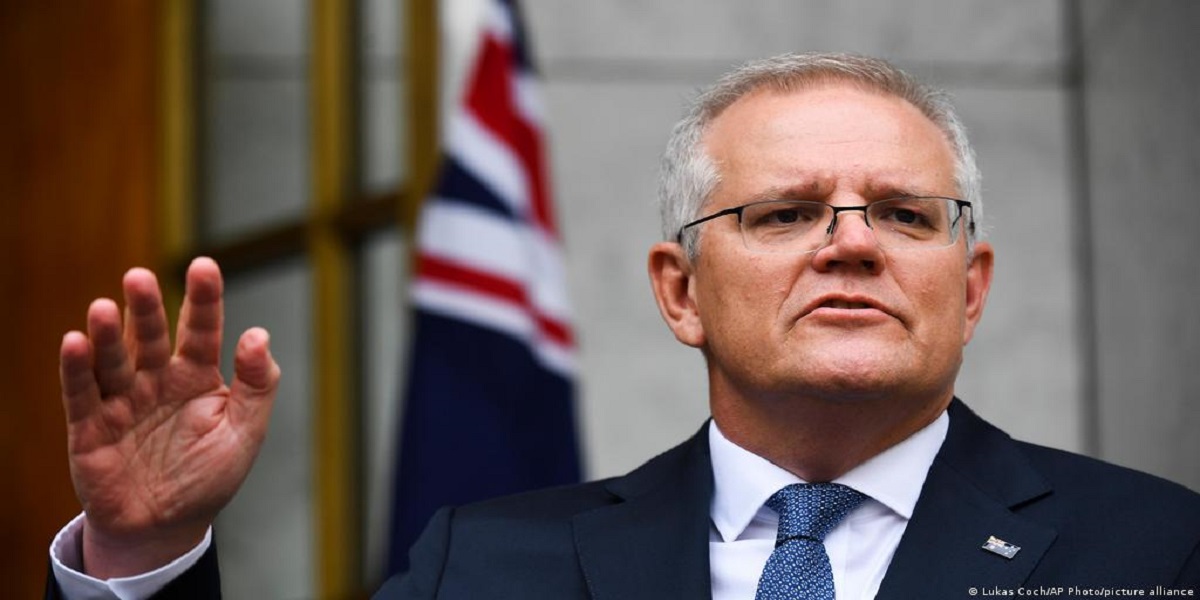Australia’s prime minister has called for a general election on May 21, with problems such as Chinese economic coercion, climate change, and the COVID-19 pandemic to be debated.
On Sunday, Prime Minister Scott Morrison instructed Governor-General David Hurley to establish the election date on behalf of Australia’s head of state, Queen Elizabeth II.
Morrison and his conservative alliance are seeking re-election to a fourth three-year term. The date is the most recent one he has.
He advised voters to support the current government, which has one of the lowest pandemic death tolls of any advanced economy, rather than the opposition Labor Party.
“This election is a choice between a government you know and trust, and a Labor opposition you’ve never heard of,” Morrison said.
Despite opinion polls constantly placing the center-left opposition Australian Labor Party ahead, Morrison led his government to a close victory in the previous election in 2019.
Most opinion surveys show the Liberal Party-led coalition trailing, although many observers foresee a close result.
The last election took place in Australia’s hottest and wettest year on record. The year came to a close with deadly wildfires raging throughout Australia’s southeast, killing 33 people and injuring over 400 more.
During the Southern Hemisphere summer, the fires also damaged over 3,000 homes and charred 19 million hectares (47 million acres) of agriculture and woods.
While his hometown Sydney was enveloped in deadly smoke, Morrison was heavily chastised for taking a covert family trip to Hawaii during the height of the crisis.
Because of the uproar, he shortened his vacation short, but he was also chastised for his excuse for his absence: “I don’t hold a hose.”
His government has been chastised for its handling of the fires, as well as unprecedented flooding in some of the same parts of Australia’s southeast that were devastated two years ago.
By 2050, both the administration and the opposition have established a goal of net zero carbon emissions.
Morrison was roundly chastised at the United Nations climate summit in Glasgow, Scotland, in November for failing to set more ambitious targets for the decade’s conclusion.
While some countries have made more aggressive commitments, the government plans to reduce emissions by 26 percent to 28 percent below 2005 levels.
By 2030, the Australian Labor Party has pledged to cut emissions by 43%.
Initially, Australia was successful in limiting the mortality toll from the COVID-19 epidemic, partly due to travel restrictions.
However, containing the more contagious delta and omicron versions has proven more difficult.
The government was criticized by the opposition for the slow speed of Australia’s vaccination rollout, which was dubbed a “stroll out” since it was months behind schedule. Australia’s population is now among the world’s most immunized.
The government has defended its pandemic record, claiming that Australia has the third-lowest death toll among the 38 countries that make up the Organization for Economic Development and Cooperation.
With China’s recent official and unofficial trade restrictions against Australia, the government claims that Beijing wants Labor to win the election because the party is less inclined to resist economic coercion.
Labor claims responsibility for sabotaging the government’s effort to sign an extradition deal with China in 2014. Bilateral ties have since deteriorated, and the Australian government now cautions that visiting China could result in arbitrary arrest.
According to several experts, both political parties are essentially aligned on national security matters, and the administration is fomenting divisions on China.
“The government is attempting to create the perception of a difference between itself and the opposition on a critical national security issue, namely China, when none exists in practice,” said Dennis Richardson, a former Australian ambassador to the United States and former head of Defense, Foreign Affairs, and the spy agency Australian Security Intelligence Organization.
“It’s not in the national interest to do that.” That only benefits one country, and that is China,” Richardson remarked.




















